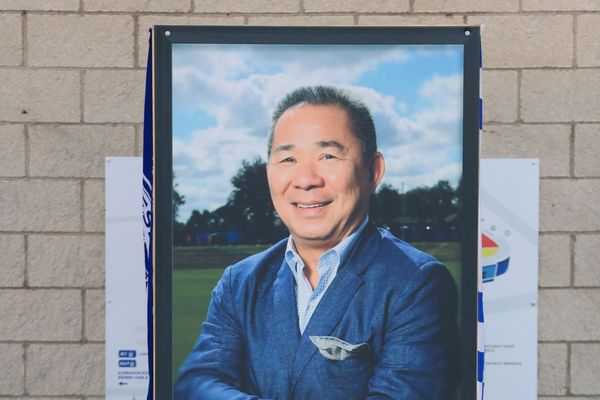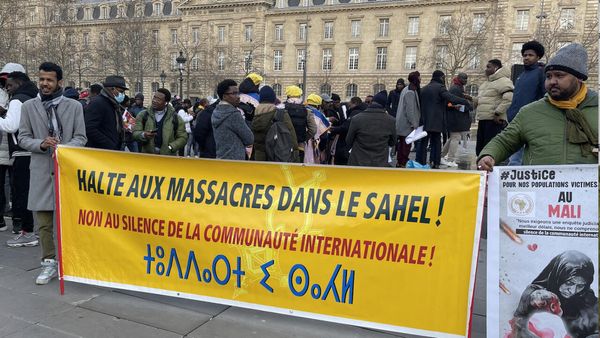
The environment in the Asia-Pacific is less alarming than it was a year ago. Washington and Beijing are talking again. So are Canberra and Beijing.
The United States is focused, externally, on the Middle East and the Russia-Ukraine war and, internally, on this year’s presidential election. China is preoccupied with stabilising and energising its domestic economy.
For now Beijing has largely silenced its diplomatic wolf warriors, Washington has been less accusatory and neither side seems in the mood to escalate tensions – over Taiwan, trade or anything else.
But none of this is cause for complacency, in Australia or anywhere else in our neighbourhood. US-China strategic competition remains very real, with Washington unwilling to acknowledge any limits to its longstanding global and regional primacy.
Beijing is manifestly determined to challenge that primacy, backing its rhetoric with a very significant expansion and modernisation of its military – including nuclear – capability. Taiwan, the South China Sea and the Korean peninsula continue to be dangerous potential flashpoints.
The unhappy reality is that nations can sleepwalk into war, even when rational, objective self-interest on all sides cries out against it.
Bellicose nationalist rhetoric, designed mainly for domestic political consumption, can generate overreactions elsewhere. Small provocations can generate an escalating cycle of larger reactions. Precautionary defence spending can escalate into a full-blown arms race. With more nervous fingers on more triggers, small incidents can escalate into major crises.
And major crises can explode into all-out war – creating, in this nuclear age, existential risks not only for its participants but life on this planet as we know it.
All this means that the time is ripe for reinforcing and consolidating the gains to ensure that they are not just fleeting and transitory. What is needed is an overt commitment from both the US and China – not just rhetorically – to living cooperatively, together, both regionally and globally, in an environment where both sides respect each other as equals and neither claims to be the undisputed top dog.
Such an accommodation is not the stuff of fantasy. We have been there before. The detente between the US and the Soviet Union, negotiated by Richard Nixon and Leonid Brezhnev, lasted through the 1970s. It delivered major arms control treaties and the Helsinki accords.
This was renewed by Ronald Reagan and Mikhail Gorbachev in the 1980s. It’s the approach to superpower coexistence always championed by the late Henry Kissinger, in what remains the most admirable and untarnished part of his legacy, and which he was clearly pursuing in his well publicised last visit to China last July.
So we, and our fellow 50 Australian signatories, believe that it is time for the US and China to enter into a comprehensive new detente, formally pledging to treat each other as mutually respectful equals, to resolve differences peacefully and to work together to advance global and regional goods like nuclear arms control, the mitigation of global warming, counter-terrorism and cyber-regulation.
Australia is not condemned to being a bit player in this enterprise. We are at most, like nearly all our regional neighbours, a middle power, but one that has enjoyed in the past a reputation as an energetic, creative and effective diplomatic actor, offering constructive solutions to the resolution of complex international problems.
Our voice in this respect will be best heard, as it has been in the past, if we maintain a fierce sovereign independence in our decision-making, not allowing either our alliance relationship with the US or our enormous economic dependence on China to cloud our judgment about what is in our own and everyone else’s best interests.
To be seen as either side’s patsy is to condemn us to diplomatic impotence and irrelevance.
None of this means that Australia or anyone else should be oblivious to the possibility of worst-case scenarios. We and our fellow signatories acknowledge that it is every state’s right and responsibility to build the kind of defence capability, and partnerships, that will enable it to meet such contingencies.
Supporting detente and doing everything within our power to bring it about does not mean appeasement, pacifism or mindless optimism. What it does mean is recognising that lasting peace is always best achieved with others, rather than against them.
Achieving the kind of mindset change that will enable both sides to embrace the spirit and substance of detente will of course not be easy: continued primacy is an article of political faith in the US, and China will not find it easy to step back on the South China Sea, let alone Taiwan.
But quieter voices in both countries, and there are plenty of them, do recognise that the path to sustainable peace and prosperity lies not in confrontation but cooperation, achieved through restraint and balance, diplomacy and dialogue.
And it is those voices which Australia should be encouraging, who we are capable of influencing and to whom our statement is directed.
Bob Carr is a former Australian foreign affairs minister and longest-serving premier of New South Wales. Gareth Evans was Australia’s foreign minister from 1988 to 1996







